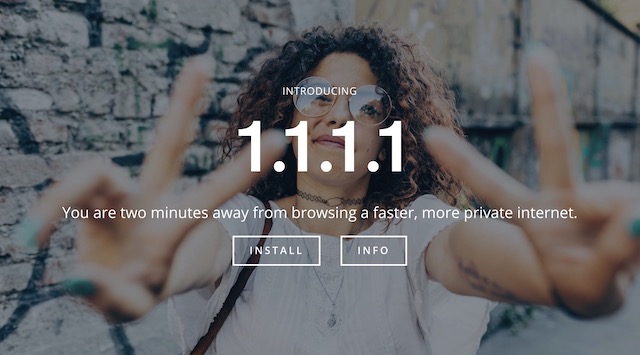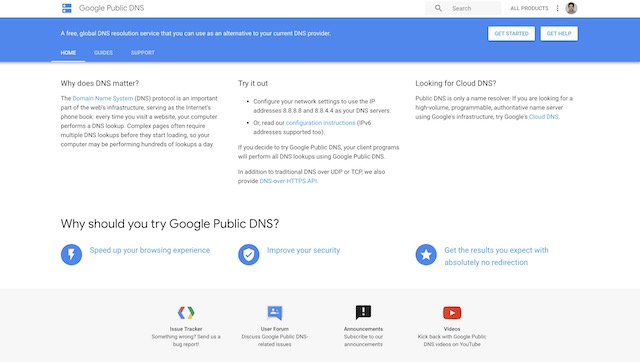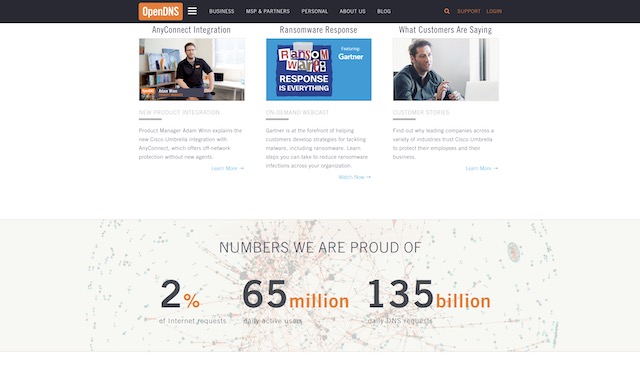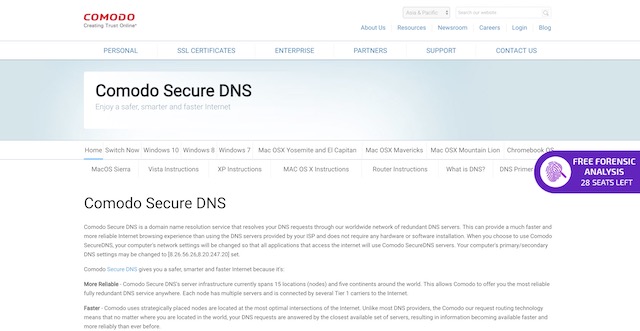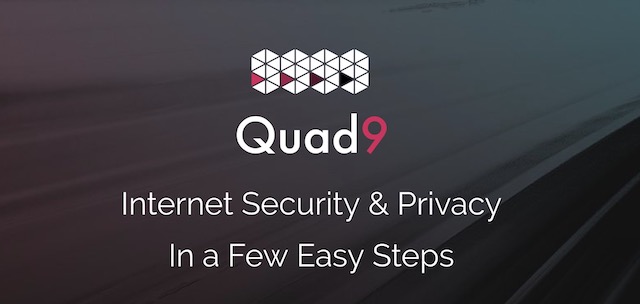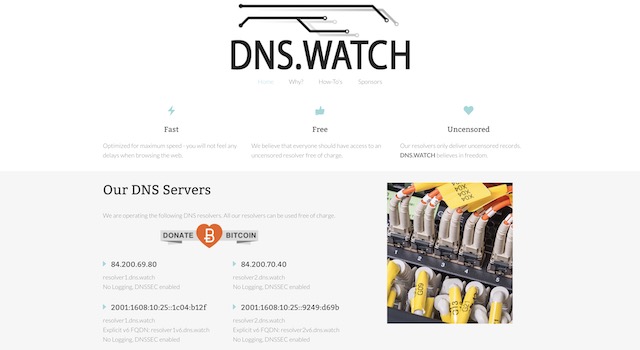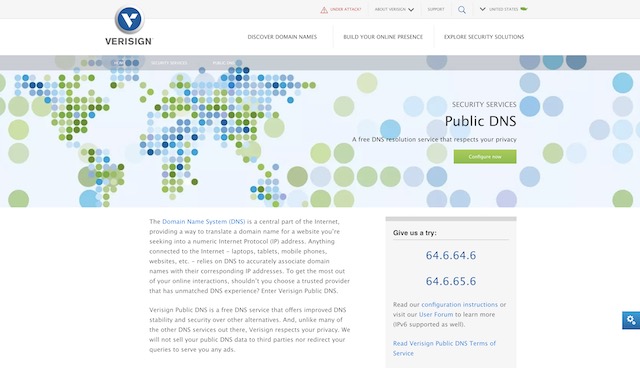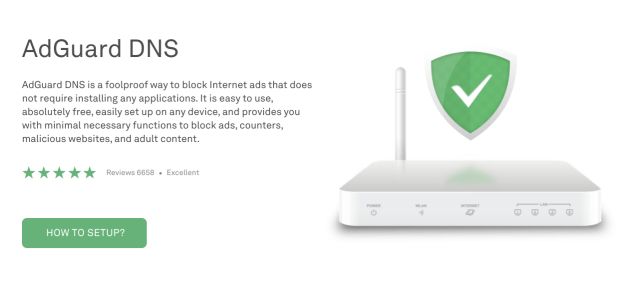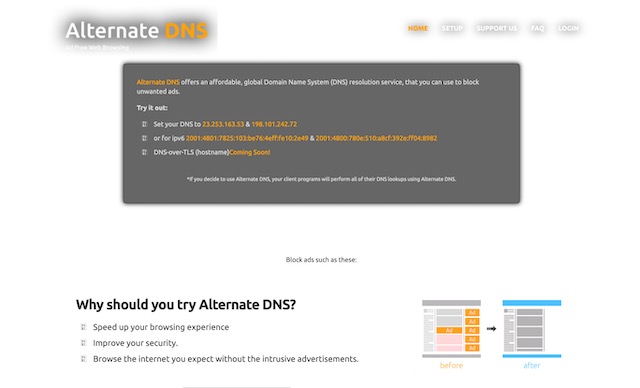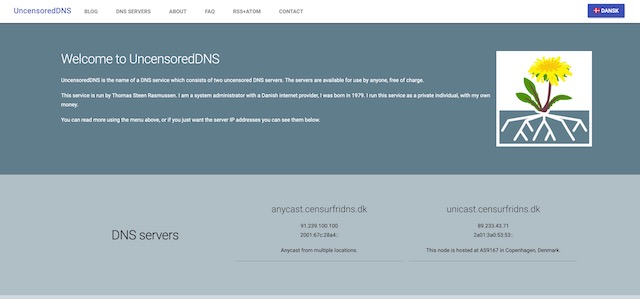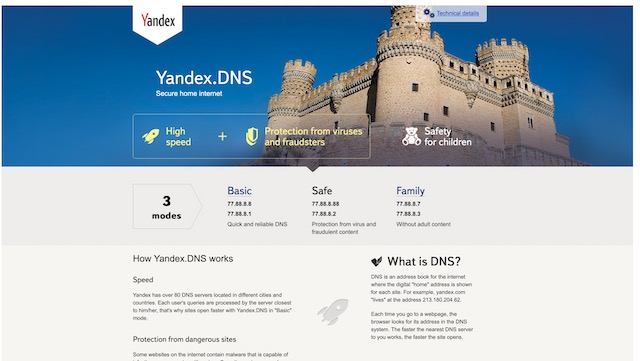Best DNS Servers You Can Use in 2022
Before we get to our list, I would like to discuss DNS servers in a little more detail and answer questions such as why you should be using alternate DNS servers. If you don’t want to read extra information, make use of the table of content below to quickly movie to the list of DNS servers.
What are DNS Servers?
DNS aka Domain Name Server is designed to translate domain names into machine-friendly IP addresses to help browsers like Chrome load internet resources. Each device connected to the internet has a unique IP address which enables it to connect with other machines. More importantly, DNS servers ensure there is no need to remember IP addresses such as 208.67.220.220.
Why Should You Use an Alternate DNS?
There are multiple reasons why you may need to use a different or alternate DNS.
Using a different DNS server can help you in unlocking region-blocked content. Depending on the location of the DNS server that you are using, you can get better speeds. Using an alternative DNS server will also ensure that your ISP is not able to log each and every minute of your internet browsing history and serve you ads or sell your data. Using certain third-party DNS servers will also protect you against security attacks such as ransomware, phishing, malware, and more.
What to Consider When Switching a DNS?
There are three most important things you must keep in mind before switching a DNS? First and foremost, “Reliability”. Though most DNS servers work smoothly, not all of them are able to deliver the needed performance. The second thing you must check out before picking out a third-party DNS service is the “Speed” as it plays a vital role in accelerating the internet activity. The third thing you should never fail to check out is the safeguard against DNS-based attacks. Besides, you need to also ensure that the service offers the required shield to your personal information. Earlier, you had to pay if you wanted to use any other DNS server other than the ones that came with your ISP. Thankfully, today, many companies are providing free and public DNS servers which you can use without having to spend any bucks.
Why Paid DNS is Better Than Free?
Though many free DNS servers are fully equipped to deliver reliable performance and even safeguard the data thanks to the essential features like firewall policies, filtering, and rate-limiting and blocking to ward off DDoS attacks, most paid ones are better due largely to the much-improved website performance and more advanced nameserver setups. More significantly, the premium DNS offers enhanced security with guaranteed uptime and better support. The paid DNS service providers offer Dynamic DNS (DDNS) developed to automatically map internet domain names to IP addresses. As a result, you can access your home computer much faster from anywhere in the world. Notably, premium DNS also provides advanced reporting, two-way authentication, and solid administrator control. So, if you want your commercial website to deliver top-of-the-line performance, the paid DNS should be your preferred choice.
1. Cloudflare DNS
Cloudflare is one of the world’s topmost companies working in the web performance and security domain. in 2018, the company released a new DNS service which is one of the best free and public DNS servers that you can use today. Their new DNS server, the “1.1.1.1” is one of the fastest and privacy-first DNS servers available on the web. Firstly, the company never logs your IP address, which is what your ISP uses to track your internet habits. The company has even hired KPMG to audit their systems annually to ensure that they’re delivering on their privacy promises.
Secondly, their DNS servers bring boosted speeds with the company claiming more than 28% speed increase when compared to other DNS providers. I have tested this on my Mac and while I couldn’t feel any difference in speeds on my Home WiFi, it was noticeable when I was in office. Notably, Cloudflare also makes it very easy to set up your DNS preferences as it takes only a few minutes to get it all set-up. I love that it lets me access blocked content. This one is definitely one of the best third-party DNS servers that you can use. Pros:
Free to use Never logs your browsing data Faster than usual DNS servers
Cons:
Nothing I could find
IP Addresses for DNS: 1.1.1.1, 1.0.0.1 Visit: Website
2. Google Public DNS
Google Public DNS service is probably one of the most popular free and public DNS servers on the planet. Launched in December 2009, the Google Public DNS aims to make the internet more reliable and secure. According to the website, Google Public DNS protects users against various kinds of phishing attacks, especially if you are using older hardware to access the internet.
One of the notable advantages you get by shifting to Google Public DNS is enhanced security and optimized speed. Google uses Anycast routing for finding the closest server for data interaction thereby ensuring that you receive information in the shortest time possible. To use Google Public DNS, users will need to configure their network settings to use the IP addresses 8.8.8.8 and 8.8.4.4 as their DNS servers. Google Public DNS also supports IPv6 addresses. However, that needs a little more configuration which you can learn by clicking here. Overall Google Public DNS is a very good option for anyone looking to try out a third-party DNS server. Pros:
Free to use Brings speed enhancements Protects against phishing and DDoS attacks
Cons:
Google might be logging your browsing history
IP Addresses for DNS: 8.8.8.8, 8.8.4.4 Visit: Website
3. OpenDNS
OpenDNS is a free and public service provided by Cisco which is a giant in the networking space. It gives you tools not only to access the internet in a fast and secure way but also prevents attacks from shoddy and forged clone websites.
Furthermore, it also blocks phishing websites along with the ones which have been flagged for carrying malware. Just like Google Public DNS, OpenDNS uses Anycast routing to route your connection to your nearest DNS servers to serve you faster page load times. OpenDNS also comes with self-healing technologies with its servers spread over three continents. Designed against the failure of nearly every aspect of the system, its self-healing technology can withstand tremendous disruption to its infrastructure without causing disruption for customers. Everything considered; if you want an old and reliable DNS service that will never let you down, do try out OpenDNS. Pros:
Free for personal use Brings speed enhancements Protects against phishing attacks, malware attacks, and cloned websites
Cons:
Logs the DNS traffic that it receives
IP Addresses for DNS: 208.67.222.222, 208.67.220.220 Visit: Website
4. Comodo Secure DNS
Comodo Secure DNS is a domain name resolution service that resolves your DNS requests through the company’s worldwide network of redundant DNS servers. This can provide a much faster and more reliable Internet browsing experience than using the DNS servers provided by your ISP. Besides, it also does not require any hardware or software installation. Comodo Secure DNS’s server infrastructure currently spans 15 locations (nodes) and five continents around the world. This means that most will have a DNS server nearby resulting in faster internet speeds.
Comodo Secure DNS also keeps the users secure with its malware domain filtering feature. SecureDNS references a real-time block list of harmful websites (phishing sites, malware sites, spyware sites, and parked domains among others) and warns visitors whenever they attempt to access a site containing potentially threatening content. As malware attacks are increasing day by day, having this security ensures that we can surf the web without facing its lurking dangers. Overall, I quite like Comodo Secure DNS and find it one of the best DNS providers out there. Pros:
Free for personal use Covers 5 continents Protects against phishing attacks, malware sites, spyware sites, and more
Cons:
Not as reliable as the first three
IP Addresses for DNS: 8.26.56.26, 8.20.247.20 Visit: Website
5. Quad9 DNS
Quad9 DNS is yet another free and public DNS server that you can use to route your traffic away from your ISP provided DNS servers. Just like other DNS servers on this list, once configured, Quad9 routes your DNS queries through a secure network of servers around the globe.
The system uses threat intelligence from more than a dozen of the industry-leading cybersecurity companies to give a real-time perspective on website threat analysis. Whenever its DNS servers find an infected or cloned website, they block your connection so that your device and data remain safe. Another thing worth noting is that Quad9 DNS is also very easy to set up and doesn’t require any software installations. If none of the above-mentioned DNS servers meet your needs, you can definitely check this out. Pros:
Free for personal use Protects against privacy attacks Keeps a real-time perspective on website threat analysis
Cons:
Might be slower depending on where you live
IP Addresses for DNS: 9.9.9.9 Visit: Website
6. DNS.Watch
DNS.Watch is a great third-party DNS server for people who want to surf the internet without the pain of any restricted content. The DNS server is totally free to use and doesn’t require any installations. While the other DNS server providers also help in opening the geo-restricted content, DNS.Watch solely dedicates itself to the purpose and hence you will have the best-unrestricted internet experience here. The company also believes in user privacy thus it doesn’t log any DNS queries sent by your devices.
Since there is no logging of data, your data is safely hidden away from the hands of ad agencies that follow you like sharks across the internet. That said, since DNS.Watch is a smaller company it doesn’t have the resources to bring threat analysis like some of the other DNS server providers on this list. So, you will have to safeguard yourself against phishing, malware, and any such attacks. You will have to choose whether you want a more open internet or a more secure one. Keeping everything in mind, DNS.Watch is a reliable DNS server that you can use to surf the web with the desired freedom. Pros:
Free to use DNS Neutrality Doesn’t log your queries Doesn’t share or sell your data
Cons:
Doesn’t protect against shady websites and attacks
IP Addresses for DNS: 84.200.69.80, 84.200.70.40 Visit: Website
7. Verisign
The last open and public DNS server that we recommend is the Verisign Public DNS server which promises stability, security, and privacy. The stability part is very important as it ensures that you are always connected and never encounter any downtime because of the DNS server that you are using.
Moreover, the company also promises robust protection from security flaws around the internet. It neither sells your DNS queries to third-party data harvesting companies nor redirects your queries to serve you any ads. In a nutshell, the Verisign Public DNS server is completely free to use and definitely worth checking out. Pros:
Free to use Doesn’t log your queries Doesn’t share or sell your data Protection against security flaws
Cons:
Not the fastest on the list
IP Addresses for DNS: 64.6.64.6, 64.6.65.6 Visit: Website
8. CleanBrowsing
CleanBrowsing is for those users and particularly parents who want a safe experience on the web for their kids and families. As the name suggests, CleanBrowsing allows you to block adult content on the web, in addition to protecting you from phishing websites and malicious domains. While it’s primarily a paid service, there is a free tier and I think it’s enough for most users who just want a simple DNS server to filter the web content. Under the free tier, it offers 3 predefined filters: Security, Adult, and Family.
With the Security filter, you can restrict malicious activity on your home network. Similarly, if you use the Adult filter, you get all the features of Security plus you can also block obscene content on the web. And finally, with Family, you get everything that is included in Security and Adult. On top of that, CleanBrowsing blocks websites that have mixed content like Reddit and Tumblr. Further, it sets YouTube to Safety mode and changes the behavior of other similar websites too wherever applicable. Basically, if you want stricter filtration then go with the Family DNS. All in all, CleanBrowsing has all the essential content filtering lists and that makes it one of the best free DNS servers in this list. Pros:
Offers a free tier Features 3 customized filters: Security, Adult, and Family Blocks malicious websites and adult content Supports IPv6 Protocol
Cons:
Can’t customize the filter lists under the free plan
IP Addresses for DNS: 185.228.168.9 (Security), 185.228.168.10 (Adult), 185.228.168.168 (Family) Visit: Website
9. AdGuard DNS
AdGuard DNS is a popular and free DNS server that you can use on Windows, macOS, Android, and iOS devices. It’s widely known for blocking ads, but there is more than that. With the new AdGuard DNS, you can block trackers and analytics tools system-wide which are always on a lookout to understand your browsing habit on the web. Further, it can also stop adult content and malicious websites that try to redirect you to multiple shady websites. With the Family protection mode, you can enforce safe search in various web browsers. Basically, the search engine will stop returning websites completely that have adult content.
The best part is that you don’t need to install any app to get all these features. Simply set the AdGuard DNS manually and you will be ready to go. Not to mention, AdGuard DNS just like Cloudflare does not log DNS queries or users’ actions. Long story short, I would say if you want privacy safeguards on the web then AdGuard DNS is among the best free DNS servers that you can opt for. Pros:
Free to use Blocks trackers, analytics systems, ads, adult content No app needed Enforces Safe search in browsers Does not log DNS queries
Cons:
Nothing I could find
IP Addresses for DNS: 176.103.130.130 (Default), 176.103.130.132 (Family protection) Visit: Website
10. Alternate DNS
Alternate DNS is a fairly new DNS server, but it offers surprisingly good speed and many users vouch for its reliability and server uptime. Similar to other DNS resolvers, Alternate DNS is built on the premise of blocking ads, trackers, harmful websites, and of course, adult content.
Apart from that, Alternate DNS is compatible with both IPv4 and IPv6 protocols so if you want better speed, you can go with the IPv6 DNS address. In my brief usage, it performed pretty well, but I would recommend you to utilize Alternate DNS as a secondary DNS resolver. For a backup, it’s quite capable and should be helpful in case your primary DNS server goes down. So to sum up, if you are looking for a free DNS server that has decent performance and one that comes with all the standard features then Alternate DNS is a good pick. Pros:
Free to use Blocks ads, trackers, adult content Fast and efficient Suitable for secondary DNS resolver
Cons:
Privacy policy seems dodgy
IP Addresses for DNS: 23.253.163.53, 198.101.242.72
Visit: Website
11. UncensoredDNS
Based in Denmark, UncensoredDNS promises to be a safe bet for those looking for a free DNS. With a good set of security and performance enhancement features, you can count on it to let you surf the web without any restriction and also fend off common attacks.
UncensoredDNS has a trusted privacy policy. The company asserts that it doesn’t log any data neither about the users nor about the usage of the service. Though the DNS server does store graphs of the total queries for a personalized experience, it makes sure the personally identifiable information remains safeguarded. Additionally, UncensoredDNS states that it only uses the data for capacity planning of the service. Beyond privacy, its server is also up to the task when it comes to running smoothly. While it isn’t the fastest DNS server, you can bank on it to let you surf the web or access any restricted content without any hassle. Pros:
Hassle-free set-up Trusted privacy policy Improved security
Cons:
Server speed is not top-notch
IP Addresses for DNS: 91.239.100.100
Visit: Website
12. Yandex DNS
For more than one reason, Yandex DNS is a complete DNS server. So, if you are on the lookout for an alternate DNS that can deliver reliable performance in most aspects including speed and protection without costing an arm or a leg, this one can fit into your needs. Probably what sets this Russia-based DNS server apart is a whole host of features. And with a range of features comes the freedom to customize everything in line with your workflow. That aside, it’s also among the fastest servers which can play a vital role in enhancing your productivity.
One of my favorite features of Yandex DNS is content filtering which allows users to prohibit offensive or adult content. By keeping obscene/offensive content away, it ensures both enhanced smoothness and security. Not to mention, Yandex DNS has a robust protection feature that blocks malware and bots. To fit into different needs, it comes in three modes. While basic offers quick and reliable DNS, Safe delivers protection from viruses and fraudulent. As for family mode, it’s designed to keep adult content at bay. Considering these notable features, Yandex DNS can easily claim to be among the best DNS servers in the world. Pros:
One of the fastest servers Blocks malware and bots Content filtering
Cons:
Set-up requires some learning
IP Addresses for DNS: 77.88.8.8, 77.88.8.1,77.88.8.88,77.88.8.2
Visit: Website
Remember to Optimize your Devices’ DNS
For enhanced performance and better security, it’s always better to optimize your device’ DNS. Though not many may think of reducing milliseconds of time that it takes to look up websites via the domain name system, those looking for a top-notch internet performance will appreciate cutting down the slack. And now that you have a list of best free and open DNS servers, you should use them on your device. If you don’t know how to do it, check out our linked guide to see how you can change DNS settings on your Android device. Also, here’s our guide on changing DNS settings in Windows 10 PCs.
What is the Best DNS Server to Use?
Though there are several notable contenders like Google Public DNS and OpenDNS that can claim to be the best, Cloudflare DNS is slightly better. Apart from being one of the fastest, it’s also up to the mark when it comes to privacy and security.
What is the Fastest DNS Server 2022?
Cloudflare DNS, along with Comodo Secure DNS, is probably the fastest DNS server in 2022.
What is the Best DNS Server for Gaming?
Comodo Secure DNS and OpenDNS are more equipped to be considered one of the best DNS servers for gaming.
Is It Safe to Use 8.8 8.8 DNS?
Well, the straightforward answer to this question is “No”. As Google Public DNS is primarily a DNS resolution and caching server, it doesn’t offer any filtering or blocking features, which make it insecure.
Best DNS Servers to Enjoy Fast, Free, and Secure Internet
That ends our list of the best free and public DNS servers that you can use to enjoy fast, free, and secure internet on your devices. While most of us never switch from our ISP provided DNS servers, its a good practice to do so, especially if you value your privacy. Do go through the list and let us know which is your favorite DNS server amongst them all. If you are already using a different DNS server and are happy with it, do share it with us by writing in the comments section below.
